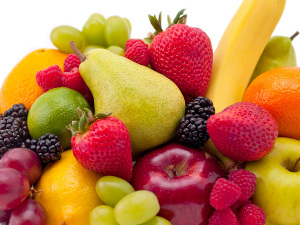Chile streamlines plant imports from French stonefruit center

A switch to new fruit varieties is not something that happens at the click of a finger. Not only does a grower need to research the suitability and prospects of a cultivar under consideration, but before they can even enter the lengthy process of orchard trials with a long-term goal toward commercial planting, they have to actually get a hold of the physical nursery material.
For countries like Chile, which are free of fruit fly and have very strict phytosanitary standards, the task of importing cultivars from the forefront of horticultural R&D is a bureaucratic and time-consuming challenge. 
That's why a recent announcement from Chile's Agricultural and Livestock Service (SAG) is so important for the sector.
Earlier this month SAG officially recognized that France's Lanxade Interprofessional Technical Center for Fruits and Vegetables (CTIFL) could guarantee a level of plant health safety that made it acceptable to import propagation material without any need for post-entry quarantine.
The recognition applies to apricots, sweet cherries, tart cherries, plums, peaches, nectarines and almonds.
"The advantage of having an overseas production center recognized by SAG is that the process for importing propagation material is much faster, as material is immediately available to the importer, avoiding it being under the control of the Service for quarantine periods that can span out to two years at least," said SAG Agriculture and Forestry Protection Division chief Rodrigo Astete.
Astete said the initiative could give a "strong push" for the replacement of fruit varieties in Chile.
"This opens the doors to continue offering our growers an unbeatable opportunity to keep diversifying the agricultural commercial exchange with all corners of the globe," he said.
France's General Food Directorate (DGAL) and the Aquitaine Regional Food Service (SRAL Aquitane) first started discussions with SAG in 2015 through a letter requesting the entity recognize CTIFL.
A series of technical reports followed suit and Chilean officials visited France to understand and verify the source and health of plant materials at the center, in addition to confirming that production and biosecurity processes as well as diagnostics and certifications were trustworthy and safe.
Chilean Nursery Association managing director Maritrini Lapuente thanked the collaborative efforts and "excellent disposition" of SAG for recognizing such an important center as being able to send stonefruit propagation material in a safe manner.
"For our nurseries the need to safely incorporate new and improved genetics is increasingly greater considering the dynamic of demand in markets and the requirements that fruit growers face," Lapuente said.
"That's why we feel very proud to be working as an association in line to achieve recognition for overseas centers, which will be key for expediting the entry of the materials that today we can bring in from CTIFL without additional quarantine," she said.
Headline photo: www.shutterstock.com


































